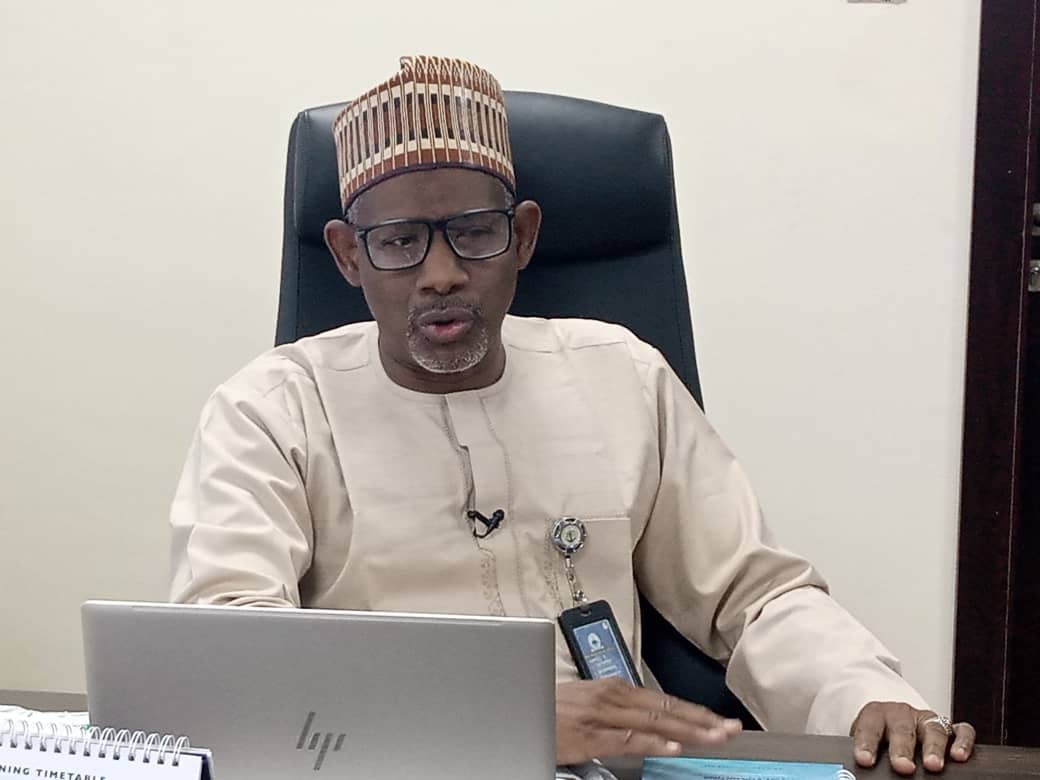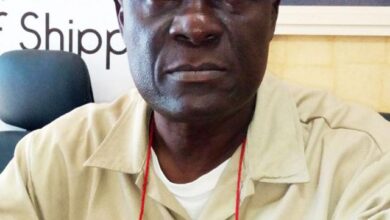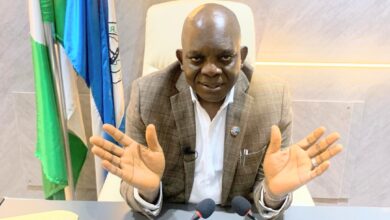NIMASA Seafarers Scholarship is Boosting Employment Chances for Nigerian Youths – Official

Aliyu Lawan, NIMASA Head of Maritime Labour Services spoke briefly on the National Seafarers Development Programme which has become a wholly sponsored scholarship scheme
Except
Give us an overview of the NSDP programme and tell us the country by country that Nigeria has sent, and candid candidate in the last 3 to 4 years and how they are fairing.
The NSDP programme started as an intervention by the agency to produce international seafarers that can compete with any seafarer across the World. Following the studies, there are lot of opportunities in the future for seafaring having observed that there will be shortage of seafarers in the next decade.
The agency in 2010 started the NSDP programme by sending Nigerian candidates abroad for seafaring. The first set went to Philippine, Egypt and other countries.
These graduates are now employed in Nigerian Maritime companies both within and outside the country. With the coming of this administration, having achieved great from the first group, the current management decided to send another batch of cadets for NSDP programme in India and Greece; these countries are great maritime nations with standard education in seafaring.
At the end of the first phrase, most of our cadets that graduated from Philippines, Romania and other countries that we sent them to, came back home and are currently doing their COC, some are already employed. Currently we have over 44 Cadets that are employed by the NLNG, others are working in Shell while some are working Saudi Arabia and other countries.
Can you tell us about the gender status of these beneficiaries. Does the NSDP covers the female gender? And to what percentage?
The NSDP programme is not discriminatory. There are a lot of females but the number of males is more than the females. But that does not mean that they are not qualified seafarers from the numbers that we have trained that are females.
I cannot say a particular figure, but there are fair percentage of female seafarers that we have trained. We have students in India and Greece, there are female Cadets that are being trained by the agencies.
Beyond the training, there is this expectation of certificate of competency being achieved by anybody who go into the seafaring course. Does the NIMASA programme do follow up to achieve CoC either within the country or outside.
The NSDP programme as conceived is a complete process from the entry to the exit which is the COC, which is the certification is covered for and paid by NIMASA.
The first challenge we had in the first group was that, the shore based training was done separately from the sea time and COC so based on that, the current management decided to take a holistic review of the programme where any school that is selected to take the cadets must have sea time components, as well as CoC components.
To this regards, our cadets that have gone to Greece after their first year have completed their sea time successfully. I mean six months sea time and are going back for shore based training to get their certification.
The NSDP has trained a lot of them for CoC programme, some of them have Certificates in Egypt, Philippines, Uk. We have some of our students in UK, Philippines doing their CoC. We are in the process of involving other cadets that have finished their sea time to do their CoC and this is covered under our budge
Aside the NLNG and Shell, what other maritime companies outside the oil sector are they having prospects of working in.
The conception of seafaring was to have seafarers of international standard. After giving them their CoC, many of them are already employed across the globe, I can’t give a particular figure. As I speak, we have former NSDP cadets that are employed in Saudi Arabia, and other shipping companies across the World.
About 2000 students that we have trained, many of them are already employed. Seafaring is something that is profitable at the end of the day which makes it very easy for the agency to check without any discrimination.
Is there a spread among the 36 states of the Federation and in Abuja. And is there equal participation in this scholarship programme?
The initial programme started with each state bringing 25 cadets for the programme where the state will pay 60% and NIMASA will pay 40% for the programme, but because of the changing of governors and late payments, NIMASA decided to reduce the number to where it can sponsor within its budget and on that basis, every state is covered.
How lucrative is the seafaring job? It seems Nigerians are not focused on it.
Seafaring jobs is one of the best job you can find. For example, if you can recall, one of the employers of seafarers at a recent conference said that he as a ship owner is paying a captain, 10 million naira per month for being a captain on his ship. So that will tell you how lucrative seafaring is. And I bet you, a qualified seafarer is one of the most well paid individual you can find across.
What are the criteria to benefit from the programme?
You must be a Nigerian, you must have gotten six or more credits in the sciences and you must be between the ages of 17 and 21 at most. But strictly, at the age of 19 is the best. Because seafaring has stages.











